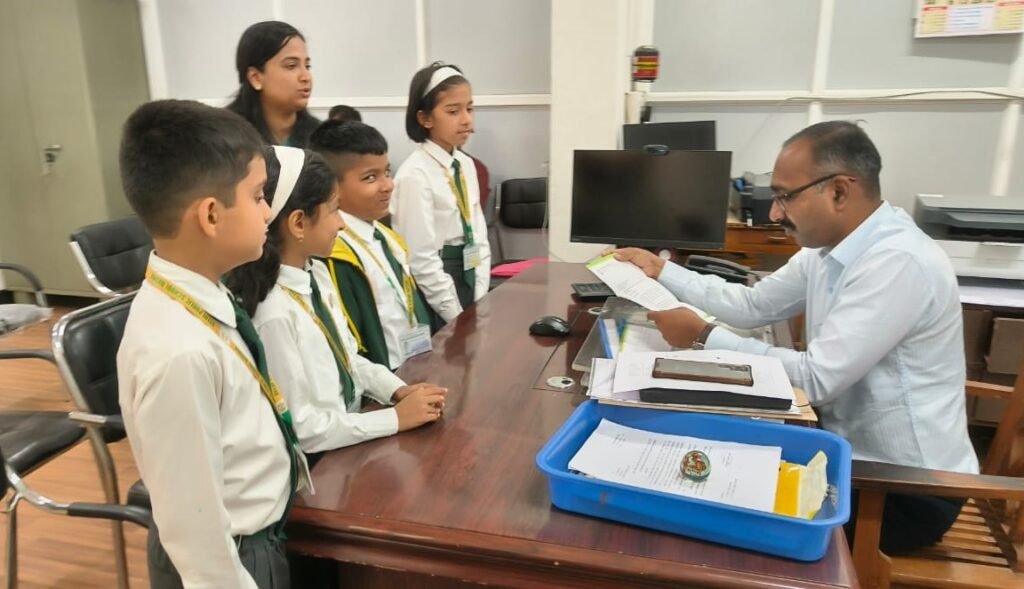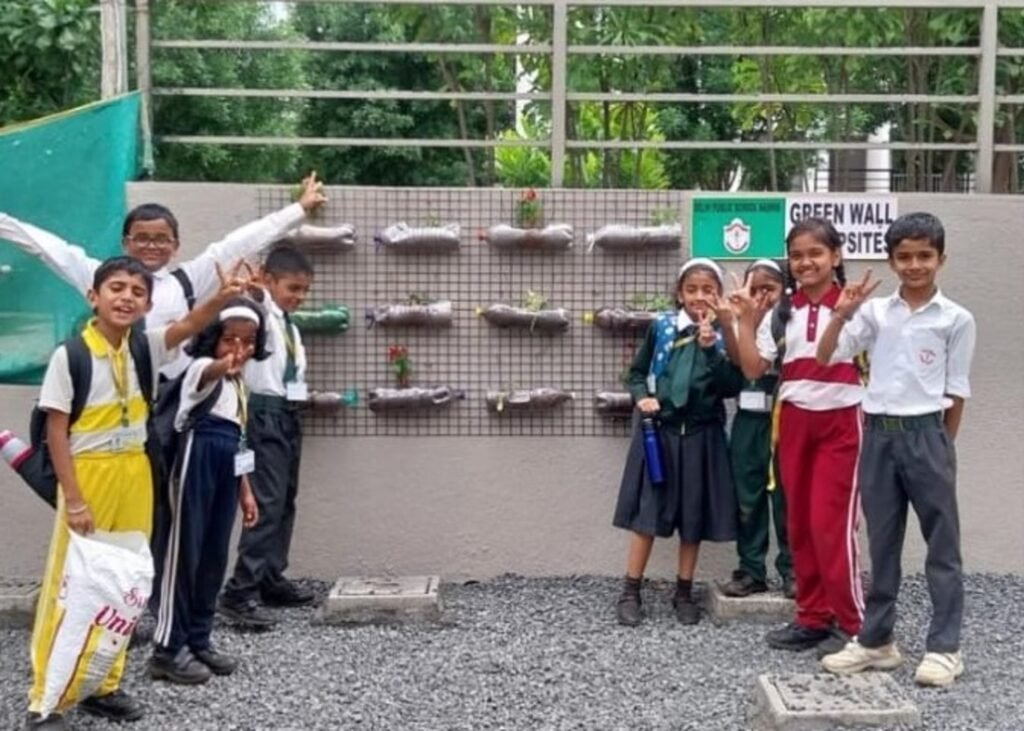Last Updated on August 20, 2024
Can a kids innocent question really alter the life in nashik, a city? About the “Green Wall” project and students taking the first step in a green revolution.
A first grader in delhi public school nashik (dps nashik) asked the innocent, but deep question, “Why can’t I have some plants in my apartment as I see in school or in the garden? She started a domino effect that could alter the nature of urban lifestyle in Nashik. This simple question, which stemmed from the idea of bringing nature a little bit closer to home, has since evolved into a mission to integrate green wall installations into every small apartment complex in the city.

It all started with a few very motivated third graders who decided that their friend’s apartment, which like most small urban apartments lacked any sort of green space, needed some green. Under the leadership of their school director, Mr. Siddharth Rajgarhia, and their facilitator, Ms. Shwetha V., the students collected plants, soil, and recycled plastic water bottles to create their very first vertical garden or “Green Wall. This little, yet powerful, project soon expanded, with the students placing seven more green walls in different apartments all over Nashik.
However the road to the green Nashik apartments was not a simple one. It required a little persuasion and stubbornness to get the apartment complex to approve these installations. Students sent letters and made phone calls, basically pleaded to be able to fulfill their green fantasy. Despite encountering limited response from the broader community, these young environmentalists remained undeterred, fueled by a commitment to making their city greener and healthier.
Also Read This: Remote Work and Rural Life: Vasanth Thrives in IT and Farming
They all paid off on aug 2, 2024 when the dps nashik greenwall team went to the nmc office. And in which they proposed that all future little apartment complexes in the city should have “green walls. The students met with shri kalpesh patil, assistant director of the town planning department, and deputy commissioner ajit nikat of godavari sanvardhan, and expressed to them with all their hearts the ecological advantages of green walls. They emphasized air purification, temperature regulation and increased urban biodiversity as the benefits of bringing these “living machines” into the city planning.
NMC officials appreciated the concept, and they know that green walls would make a difference to the city of Nashik. Well, actually they did say that the Eco Club should collaborate with the professionals and draw up some comprehensive, thorough regulations about how to integrate this program into the city’s urban development codes. This meeting represented a breakthrough for the Eco Club, as it continues to strive towards making Nashik a greener city, demonstrating the impact of public participation in the preservation of the environment.

A wish of one child has transformed into a city wide project that could possibly influence other cities to reconsider their affiliation with nature. The green wall project just proves that even the lowest voices can make a huge difference if they are just given the chance to bloom.
Also Read This: Buzzing Zen: How Beekeeping Became a Meditation for Ravindra Hegde
DPS Nashik, for instance, takes its environmentalism very seriously, and this is part of a larger educational philosophy that places emphasis not only on books and grades, but on good, strong values, and a respect for India, its culture, its history, and its world. It is due to the fact that the school has a holistic approach to education, in the sense that it does not only make its students excel in academics but also ensures that they possess the necessary life skills and values to meet the future with confidence, resilience, and integrity.
Nashik is slowly but surely becoming a greener city and the Green Wall Team is the perfect example of how a little bit of curiosity and a lot of determination can lead to great things and the realization that every child can change the world. With the world becoming so urbanized, and so many problems arising with the environment, the next big idea starts with a simple question, as it did in Nashik. The cities of tomorrow, the world, our neighborhoods, hinge on our ability to cultivate this sense of awe, to let our children dream, dream of grandeur, and then, to do.


